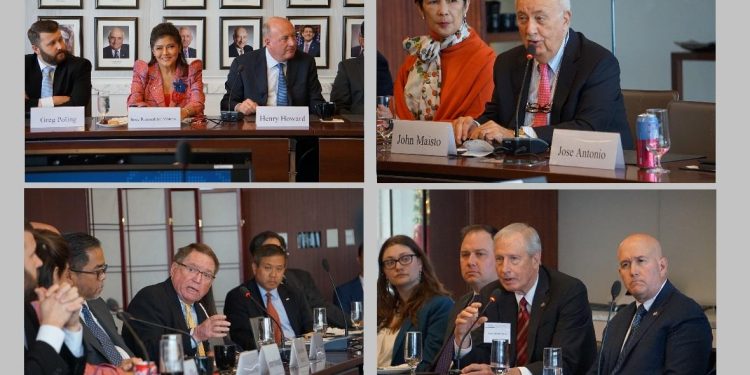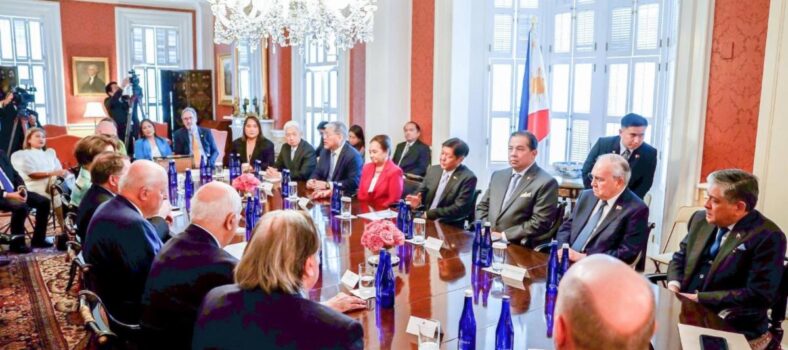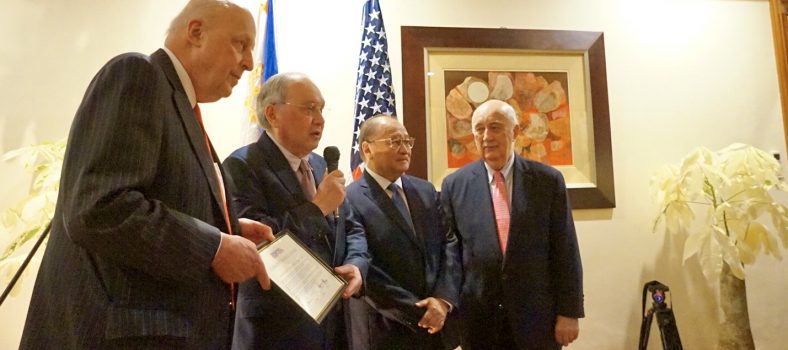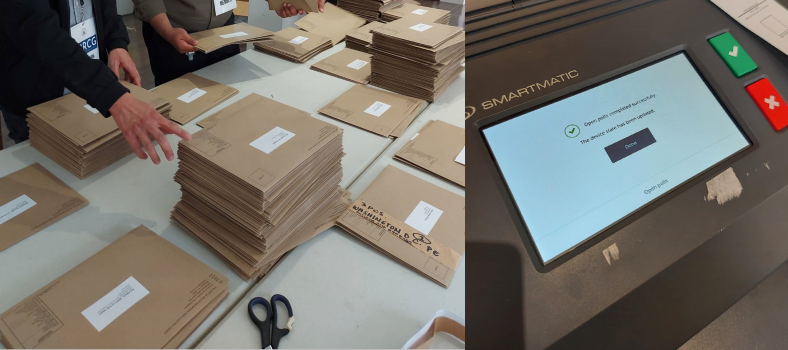Senator Imee Marcos Unveils Seven-Point Plan

Washington DC – At a September 26 luncheon program sponsored by the US-Philippines Society and the Stimson Center’s Southeast Asia Forum, Senator Imee Marcos unveiled a Seven-Point Plan for consideration by Philippine legislative leaders and the new Administration in Manila headed by her brother President Ferdinand Romualdez Marcos, Jr. Senator Marcos, who chairs the Foreign Affairs Committee, addressed the roundtable forum held at Washington’s Center for Strategic and International Studies (CSIS), describing key elements of her plan as:
- Re-examination of the US-PH Mutual Defense Treaty (MDT) and the Visiting Forces Agreement (VFA), and progress on implementing the Enhanced Defense Cooperation Agreement (EDCA).*
- Pursuit of increased military assistance; more support for local defense contractors.
- Exploration of regional Multilateral Defense Arrangements.
- Expansion of new trade opportunities, including a “Green Metals Initiative,” deep sea fishing access, and cooperation under the 2022 CHIPS Act.
- Improvements in Social Protections and public safety nets (she commended USAID and the USPHS on disaster relief and recovery).
- Acceleration of Professional Exchanges, e.g., health care workers, teachers and academics.
- Engagement with China, including joint development, confidence-building measures, and a code of conduct in the South China Sea.
*Senator Marcos clarified that she is not calling for a revision of the MDT or VFA, but an examination of how language in those agreements is implemented. She also supports full implementation of EDCA.
Senator Marcos’s remarks echoed recent statements by President Ferdinand R. Marcos, Jr. on the importance to the new administration of strengthened bilateral ties with the U.S. However, she made clear that the Philippines should open the door to broad engagement with China and told her American audience that the nations of Southeast Asia prefer a “rational approach” in relations between Washington and Beijing, not a return to the “melodrama” of the Cold War, “do not make us choose between China and the U.S.,” she said.
Participants in the roundtable discussion included representatives from leading think tanks, companies, universities, and embassies, along with members of the US-Philippines Society, USIP, the US-ASEAN Business Council, CNAS, and the Asia Foundation, among others.
Discussion covered the full range of bilateral and regional issues, including strategic challenges, post-COVID economic recovery, energy needs, food security, climate change, trade and investment, and more.
The event was moderated by US-Philippines Society Founding Director Henry Howard, who was instrumental in arranging Senator Marcos’s participation in the program.



